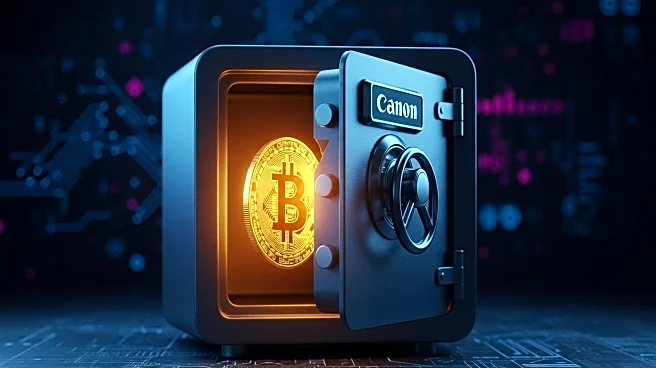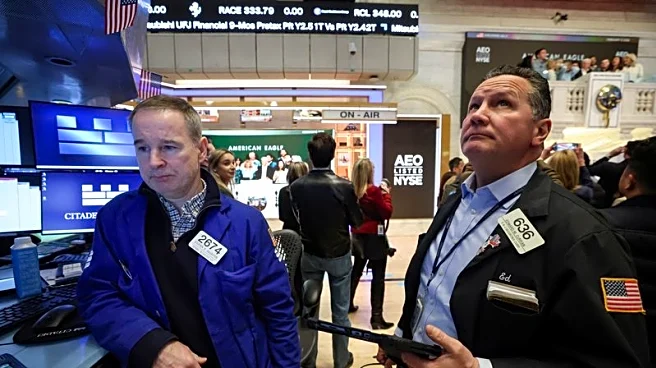What's Happening?
North Korean threat actors have stolen over $2 billion in cryptocurrency this year, marking the largest annual tally for the country’s hackers. This surge in theft is primarily driven by a $1.46 billion heist from the cryptocurrency exchange Bybit in February. Other significant thefts attributed to North Korea in 2025 include attacks on LND.fi, WOO X, and Seedify. The total stolen this year is triple last year’s figure and surpasses the previous record of $1.35 billion in 2022. The majority of these hacks have been executed through social engineering attacks, highlighting a shift from exploiting technical flaws to targeting human vulnerabilities.
Why It's Important?
The record-breaking cryptocurrency thefts by North Korean hackers have significant implications for global cybersecurity and financial stability. These activities are believed to fund North Korea’s missile and nuclear weapons programs, posing a threat to international security. The shift towards social engineering attacks underscores the need for enhanced security measures and awareness among cryptocurrency exchanges and high-net-worth individuals. The increasing sophistication of North Korea’s laundering techniques also presents challenges for tracking and recovering stolen assets, necessitating advancements in blockchain analysis and regulatory frameworks.
Beyond the Headlines
The ongoing cryptocurrency thefts by North Korea highlight broader ethical and geopolitical concerns. The use of stolen funds to support military programs raises questions about the role of cryptocurrencies in facilitating illicit activities. Additionally, the reliance on social engineering attacks points to the importance of human factors in cybersecurity, emphasizing the need for comprehensive education and training to mitigate risks. The international community may need to consider coordinated efforts to address these challenges, including diplomatic measures and technological innovations to enhance the security and transparency of cryptocurrency transactions.










